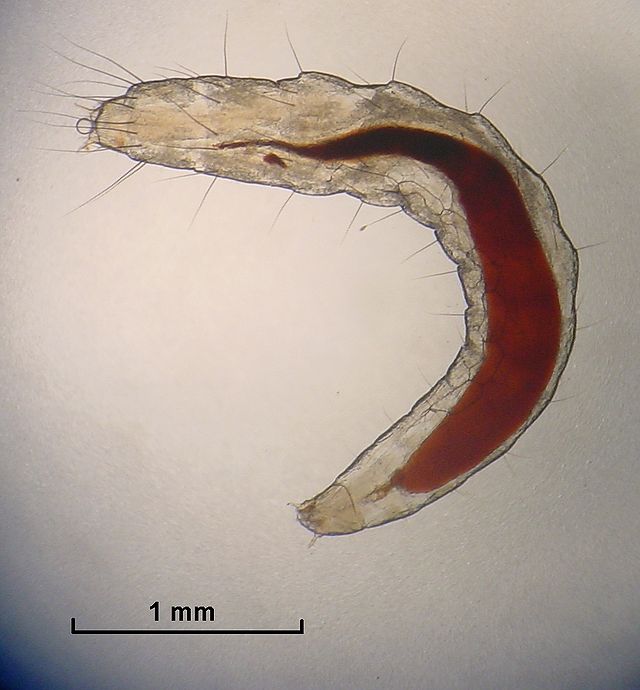Fleas have a very specific life cycle involving four different stages: egg, larvae, pupae and adult. It’s a little-known fact that only 5% of a typical flea infestation is comprised of adults; the remaining population consists of eggs, larvae and pupae. This means killing fleas will only temporarily solve your problem, as the blood-sucking parasites will regain their numbers as they progress through their life cycle.
#1) Make Your Home Cold
I know most families are conscious when it comes to cranking down the thermostat during the dog days of summer. After all, no one wants to be slapped with a hefty power bill when the first of the month rolls around. However, several studies have found that fleas are unable to hatch in environments of 68 degrees or below Fahrenheit.
It’s important to note that cold temperatures won’t necessarily kill fleas. Instead, it prevents them (temporarily) from transitioning into the next stage of their life cycle. Flea eggs will remain in a dormant-like state until the environment warms up, at which point they will hatch and begin to search for food.
#2) Insect Growth Inhibitors and Insect Growth Regulators
A second way to disrupt the flea’s normal life cycle is by using an insect growth inhibitor (IGI) and/or insect growth regulator (IGR). We’ve discussed these products before on our website, but it’s worth mentioning again that these are two highly effective ways to prevent fleas from completing their life cycle. IGI and IGR products are specifically designed to stop fleas from transitioning into another stage. If a flea larvae is exposed to an IGI product, for instance, it won’t be able to transition into the pupae.
#3) Remove The Host
Fleas, like all living animals on this planet, require food to survive. Unfortunately the flea’s food happens to be humans, dogs, cats and other warm-blooded animals. By removing the host from the equation, however, you’ll create an environment that’s unsuitable for fleas to survive.
Does this mean you should take Fido to the pound? Absolutely not! But you should consider using a flea treatment/preventative medicine to block off the flea’s source of food. Allowing fleas to feast on your dog or pet will only make the problem worse. This problem is easily fixed, however, by using a medicine like FrontLine Plus or Advantage on your dog.
Have any other tips for disrupting the flea’s life cycle? We’d love to hear them in the comments section below!

